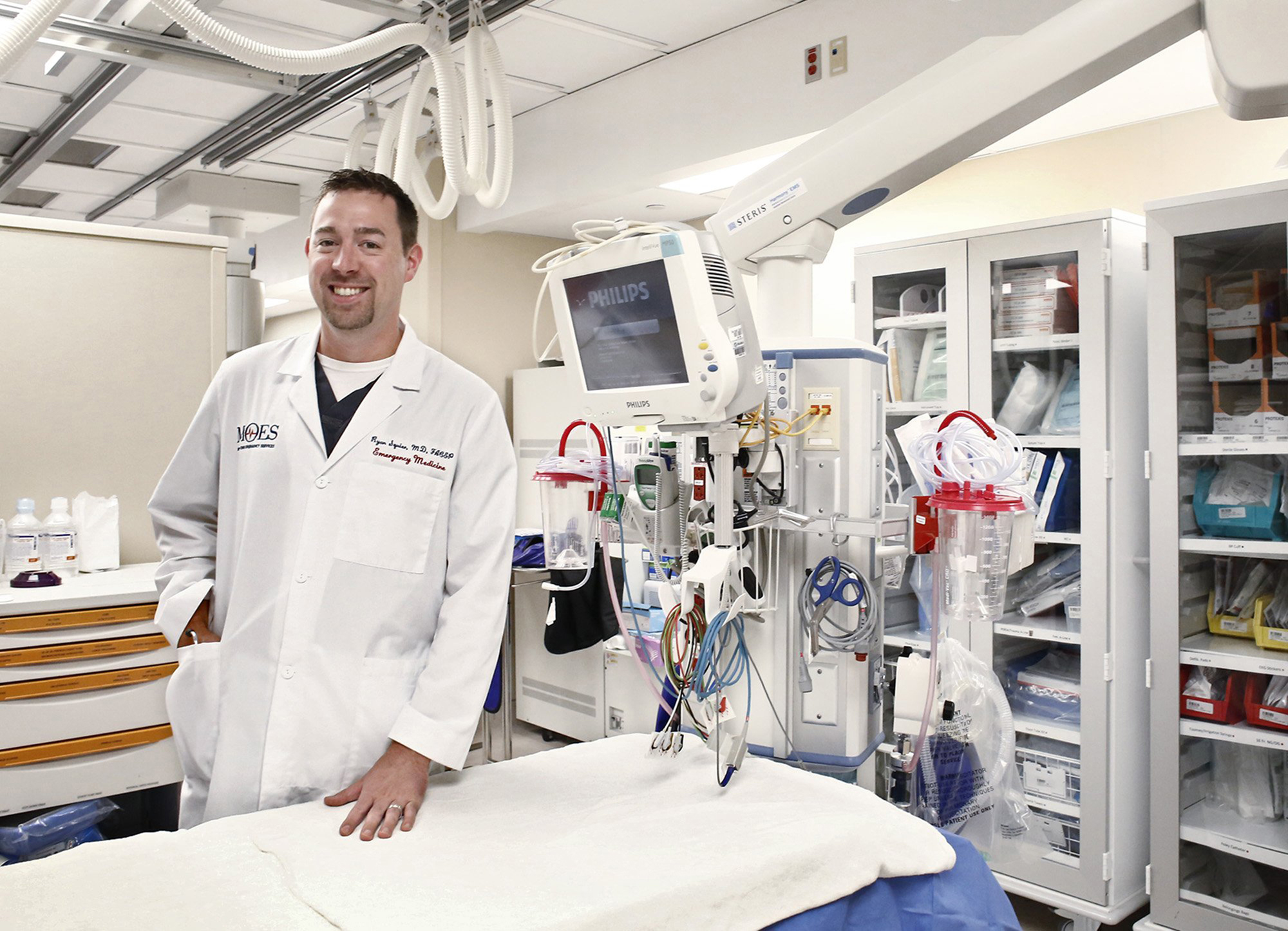Ryan Squier
Asking Ryan Squier to recall the first time he witnessed someone overdose on heroin in the emergency department is like asking him about the first time he saw someone have a heart attack. It happens so frequently now that he’s lost track.
When Squier, 34, pulls back the curtain at OhioHealth Grant Medical Center, just one of the six Central Ohio hospitals he works at as an emergency department physician, he doesn’t know what he’ll find.
Treating opioid addiction is common everywhere, from Downtown at Grant to suburban emergency facilities in Pickerington and Dublin, said Squier, a member of the American College of Emergency Physicians.
“You see it everywhere and that’s the thing,” Squier said. “We’re seeing it daily.”
Moved by what he saw in the hospitals, Squier helped create Nix Opiates, a campaign for teens aimed at ending opiate abuse through education. The program, run through Ohio ACEP, brings emergency department physicians like Squier into middle and high schools to share their firsthand experiences treating opioid addicts.
Physicians discuss the science behind addiction, statistics about the epidemic and personal stories straight from the emergency department, said Laura Tiberi, executive director of Ohio ACEP. “This is not just another ‘Just Say No’ campaign,” said Tiberi.
Since 2016, Nix Opiates has reached more than 7,000 students in 17 different Ohio schools. Many of those students come from the Olentangy school district, where Squier lives with his wife, Amy, and their four young children.
Whether he’s presenting to students, parents, teachers or administrators, Squier has a gift for making tough topics understandable for all audiences, said Karen Sedoti, former assistant principal at Olentangy Orange High School.
The first time he presented to students, Sedoti said, “You could hear a pin drop.”
Anyone who sits through one of Squier’s presentations can feel his passion, said Amanda Sines, a lobbyist with Ohio ACEP.
“He has his day or night job, he’s working a shift and raising a family and he’s still doing this because he really cares,” Sines said. “I don’t know how he doesn’t get burnt out.”
Sedoti wondered the same thing. Squier once presented at a professional development day for Olentangy administrators after working at the ED until 3 a.m.
“He is a glaring example to our kids of what it means to give back,” Sedoti said. “It’s more than just work. He sees it as an opportunity. He’s so willing to give of his talents and time and wisdom.”
Tiberi, who sometimes accompanies Squier to schools, said she notices one thing after every presentation: At least one person comes up and asks Squier for help.
“There is always somebody that comes up and says, ‘I need to talk to somebody,’ ” Tiberi said. “It’s so close to all of us. We’re all a step away. I think he always walks away feeling like we helped at least one person today.”
With so much discouraging news about the opioid epidemic, Squier said it can be hard some days to feel optimistic. But by dragging the debilitating effects of this epidemic into the light for the youth to see through Nix Opiates, he said he still has hope.
“I’ll say it 100 times, and if one person listens to me about their health choices, that’s still one percent,” Squier said. “I’ll say it ‘til I’m blue in the face because I want to make sure I’m helping people if I can save their life.”
